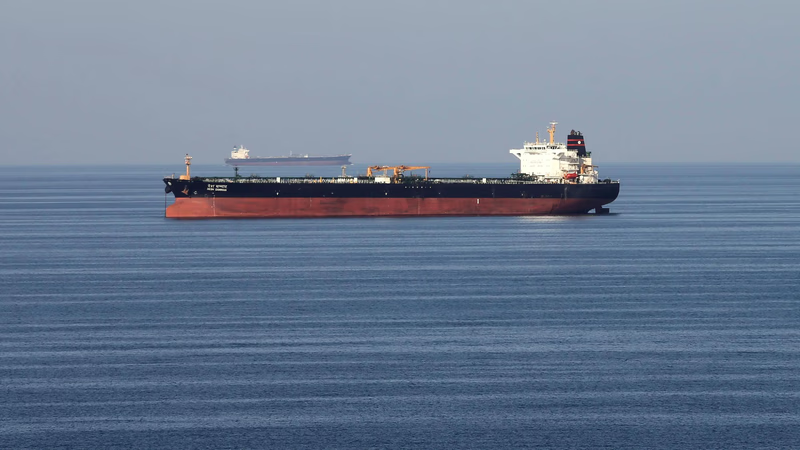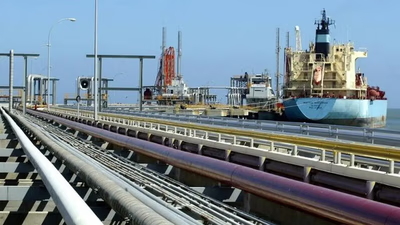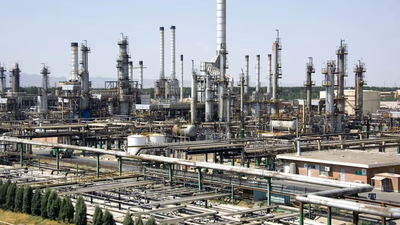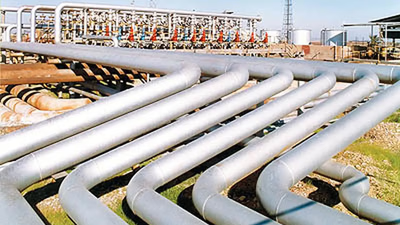
Petroleum trade in the Middle East: oil, export infrastructure.
Trading petroleum products in West Asia, also known as the Middle East, is a significant aspect of the region's economy due to its abundant oil resources. Several West Asian countries are major exporters of petroleum products. Saudi Arabia, Iraq, Iran, Kuwait, and the UAE are key players in the global oil market, and they export significant volumes of crude oil, refined products, and petrochemicals to various regions around the world. West Asian countries have developed extensive oil infrastructure to support the trading of petroleum products. This includes oil refineries, export terminals, pipelines, storage facilities, and shipping capabilities. Major ports in the region, such as Ras Tanura in Saudi Arabia and Kharg Island in Iran, facilitate the loading and transportation of petroleum products.
West Asia is a significant player in the global petrochemical trade. Alongside crude oil and refined products, the region exports a wide range of petrochemicals, including plastics, fertilizers, chemicals, and polymers. These products are traded internationally and used in various industries such as manufacturing, agriculture, construction, and consumer goods. West Asian countries often engage in regional cooperation and trade agreements to enhance the trading of petroleum products. For example, the Gulf Cooperation Council (GCC) promotes economic integration among its member states, facilitating trade and investment in the oil and petrochemical sectors.
The trading of petroleum products is subject to market volatility caused by factors such as geopolitical tensions, global economic conditions, natural disasters, and changes in oil supply and demand. Fluctuations in oil prices can impact trading activities and the profitability of both exporters and importers. It's important to note that specific trading practices and regulations may vary between countries in West Asia. Additionally, geopolitical factors and regional dynamics can influence the trading environment over time.
Exports of petroleum products to the Middle East have been greatly developed in terms of the proper use of oil and gas reserves on a large scale, having a suitable geographical location in the Middle East for exports and international transactions. Finally, the proximity of the Middle East to countries that are growing and developing in international markets and have a good consumer market makes the issue of exports in various categories a matter of course and important.
Meanwhile, the national companies distributing petroleum products in the Middle East, using the existing experts in the field of export and the competitive advantages that exist in this regard, have appropriate technical facilities and using the existing tanks to store these products. Oil has desirable and advanced facilities in terms of transportation. In a short period, the company has been able to penetrate the oil markets successfully and successfully with the necessary commitments, including China, Japan, Singapore, UAE, South Korea, and Africa.
West Asian countries engage in trade partnerships with both regional and international counterparts. They export petroleum products to countries across the globe, including those in Asia, Europe, North America, and Africa. These exports are often facilitated through long-term contracts, spot sales, and intermediaries such as trading companies and oil majors. The pricing of petroleum products in West Asia is influenced by various factors. This includes global oil market dynamics, supply and demand fundamentals, geopolitical developments, and pricing mechanisms such as the use of benchmark crude oil prices like Brent or Dubai/Oman crude. Pricing can also be influenced by agreements between buyers and sellers, taking into consideration factors such as quality, transportation costs, and contractual terms.
-

West Asia, particularly the Middle East, is a pivotal region in the global petroleum industry, housing some of the largest oil reserves worldwide. Countries like Saudi Arabia, Iraq, Iran, Kuwait, and the UAE are key players, significantly influencing global oil production and prices through their membership in OPEC. The region"s vast reserves of crude oil contribute to its economic stability and geopolitical dynamics. Beyond traditional fuels, West Asia also produces a range of non-fuel petroleum products, including lubricating oils, asphalt, and petrochemicals, which are essential for various industries. The robust petrochemical sector in the region produces downstream products such as plastics and fertilizers, further diversifying its economic base. Strategic maritime chokepoints like the Strait of Hormuz and Bab el-Mandeb are crucial for global oil transportation, making the region a focal point for international trade. Oil revenues have facilitated infrastructure development and investment across multiple sectors, although they have also led to geopolitical tensions over resource control. Understanding the complexities of West Asia"s petroleum landscape is vital for businesses and stakeholders engaged in the B2B marketplace in Asia, as it shapes trade dynamics and supply chain solutions.
-

Petroleum products are derived from crude oil through a complex refining process that begins with laboratory evaluation. The distillation of crude oil in a refinery separates it into various cuts, which may require further processing to enhance their quality. Common petroleum products include gasoline, diesel fuel, jet fuel, heating oil, and liquefied petroleum gas (LPG). Each product serves specific purposes, such as fueling vehicles, heating homes, and powering aircraft. Additionally, petroleum-based lubricants reduce friction in machinery, while asphalt is essential for road construction. The versatility of petroleum extends to the production of petrochemicals, which are vital in manufacturing plastics, synthetic fibers, and various chemicals used across industries. With over 6,000 petroleum products identified, their significance in daily life is profound, impacting everything from transportation to household cleaning products. Understanding the intricacies of petroleum refining and its products is crucial for stakeholders in the Middle East trade platform and B2B marketplaces in Asia, as these insights can drive better supply chain solutions and business networking opportunities.
-

Trading petroleum products is crucial for West Asia"s economy, with key exporters like Saudi Arabia, Iraq, Iran, Kuwait, and the UAE dominating the global oil market. The region"s extensive oil infrastructure, including refineries, export terminals, and major ports like Ras Tanura and Kharg Island, supports the trade of crude oil, refined products, and petrochemicals. West Asia is also a significant player in the petrochemical trade, exporting a variety of products used in manufacturing, agriculture, and construction. Regional cooperation, exemplified by the Gulf Cooperation Council (GCC), enhances trade and investment in the oil sector. However, market volatility due to geopolitical tensions and economic conditions can impact trading activities. The Middle East"s strategic geographical location facilitates exports to growing markets, while national companies leverage competitive advantages for successful market penetration. Trade partnerships extend globally, with exports reaching Asia, Europe, North America, and Africa through long-term contracts and spot sales. Pricing of petroleum products is influenced by global market dynamics, supply and demand, and geopolitical developments, with agreements often factoring in quality and transportation costs."
-

The export of petroleum products from the Middle East plays a crucial role in meeting the demands of neighboring countries and enhancing economic growth. By leveraging diverse oil reserves and effective operational mechanisms, exporters can cater to various market needs, ensuring customer satisfaction and financial returns. Thorough market research is essential to identify target markets, understand pricing trends, and analyze competitors. Developing a strong brand identity and implementing effective marketing strategies, both online and offline, can significantly raise awareness and promote product quality. Establishing a robust distribution network and optimizing supply chain management are vital for timely delivery and cost efficiency. Building strong relationships with customers, including oil traders and petrochemical companies, is key to understanding their evolving needs. Tailoring products to meet specific market requirements enhances competitiveness. Choosing appropriate market entry strategies, ensuring compliance with international regulations, and developing effective pricing strategies are crucial for successful exports.
Continuous exploration of new markets and diversification of product offerings can lead to growth opportunities. Collaborating with industry associations and attending networking events can provide valuable insights and partnerships. Overall, a strategic approach to the export of petroleum products can foster long-term relationships and contribute to economic development in the region.




